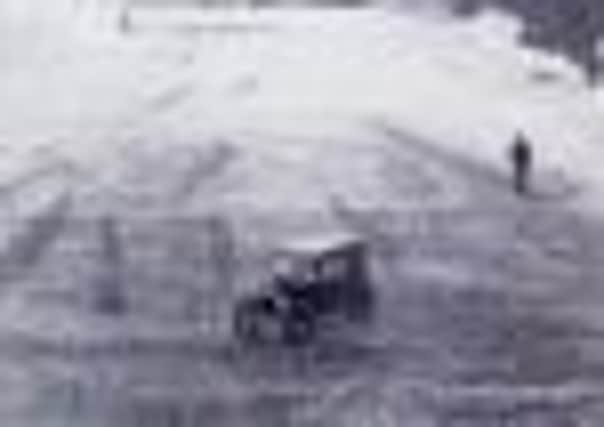A swan was stuck to the ice by its paddles


Captain of cricket, rugger and squash, his legs were cut from beneath him with one cracking sound and he was up to his neck in water, his head on a plate before General Winter.
Serve you right, thought I. Knowing nothing of cricket, rugger or squash, my 14-year-old eyes did at least know about ice on village ponds and lakes, to the Norfolk Broads and their unplumbed depths.
Advertisement
Hide AdAdvertisement
Hide AdHard winters had been two a penny then. Our haughty hero had not noticed the ice beneath his skates flexing and bending. Every generation has to learn afresh about ice.
There was the famous mini ice age recorded by John Evelyn in 1684 when bull-baiting and coach races took place on the Thames, and “...the trees not only splitting as if by lightning struck, but men and cattle perishing in divers places and the very sea so lock’d up with ice that no vessels could stir out or come in.”
He recorded that the frost reached Spain and beyond, that deer parks were destroyed, birds, fish and exotic plants all perished, the brewing industry ceased, there was no fresh water and every moment was full of disastrous accidents.
In 1869 the ice in Regent’s Park lake suddenly gave way and 200 people were immersed, 60 drowning.
Advertisement
Hide AdAdvertisement
Hide AdIn 1963, I remember seeing a car driving down the Thames, and the ice on Surlingham Broad in Norfolk was two feet thick as I walked across it with my labrador to try to free -too late- a swan stuck by its paddles to the ice.
Thousands of wading birds, swans and geese and ducks were killed in the frost that year.
One of the grandest descriptions of ice came from the pen of Col Peter Hawker in 1823, in Poole Harbour: “Nothing could be more novel or beautiful than the appearance of the harb our, which was one solid region of ice, with pyramids formed by the drifting snow, and frozen like glass.
And on the thaw setting in, the harbour became a floating island and was carried off by the tide..... with 14 wild swans sitting upon this white castle.
Advertisement
Hide AdAdvertisement
Hide AdEvery icy winter has its stories. As greybeards, children today will one day tell an unbelieving audience how they were frozen up in Gatwick, their holiday in Teneriffe delayed by three days.
Personally, and perversely, my memory of St John Moncriefe-Moncriefe up to his neck with a silly look on his face sometimes tops them all in my worst moments.